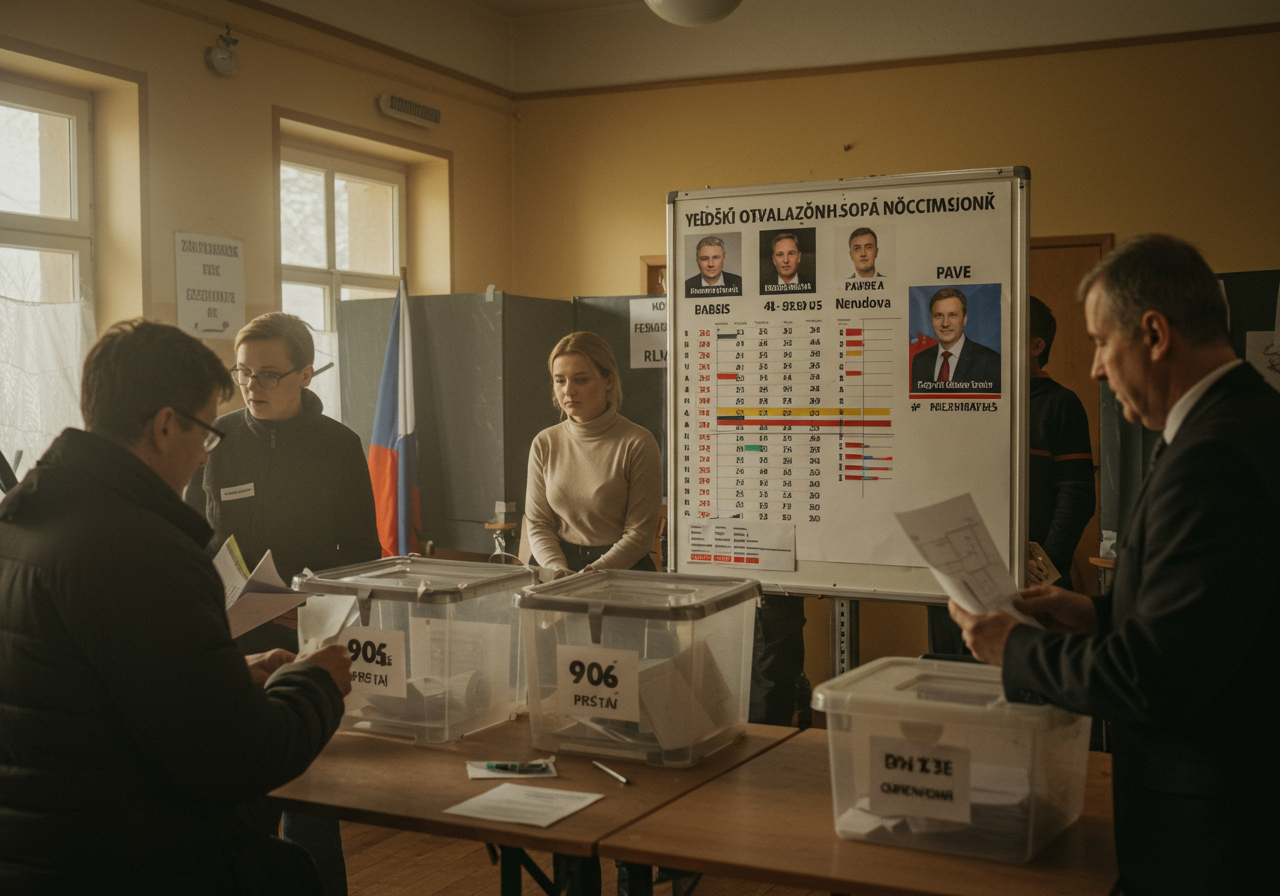By Kristina Vankova
In a recent survey examining the preferences of Czech voters for their next presidential leader, former army general Petr Pavel emerges as the top choice, showcasing steadfast popularity among the citizens. This reveals a fascinating insight into the political landscape of the Czech Republic, where Pavel seems to maintain an edge over renowned figures such as Andrej Babiš and Marek Eben.
Overview of the Survey
The survey conducted suggests that Pavel is significantly favored over his potential competitors. This isn’t particularly surprising considering Pavel’s previous accomplishments and the public’s trust in his leadership abilities. The veteran military leader is celebrated for his role in various international organisations and his significant contributions to national security, which continue to endear him to citizens.
Competition, however, remains tight. The former Prime Minister, Andrej Babiš, has also maintained a substantial base of supporters. Known for his pragmatic political approach and business acumen, Babiš has been a dominant figure in Czech politics for years. Meanwhile, Marek Eben, an entertainer and talk show host well-loved by the public for his charismatic personality, demonstrates an intriguing rise in popularity despite his primarily entertainment-oriented career.
Petr Pavel: The People’s Choice
Petr Pavel’s career achievements have played a pivotal role in fostering his standing with the Czech populace. His diverse experience, including his tenure as chairman of the NATO Military Committee, positions him uniquely as a candidate able to bridge both national interests and international relations.
Voters appreciate Pavel’s commitment to transparency and democratic values, essential components of his campaign narrative. His military track record of promoting diplomacy and security is particularly resonant in today’s complex geopolitical climate, appealing to citizens who prioritize stability and security in their leadership.
Andrej Babiš: A Resilient Contender
Having served as Prime Minister from 2017 to 2021, Andrej Babiš remains a formidable contender. Although his tenure was marked by controversies, his influence in Czech politics cannot be understated. Babiš’s economic policies, focused on boosting the national economy and reforming public administration, have won him a dedicated following that aligns with his vision for a prosperous Czech Republic.
Babiš also capitalizes on his extensive network within the business community, portraying himself as a leader who can drive economic growth and innovation. While criticisms regarding business ethics and governance linger, many of his supporters continue to view him as an effective and results-oriented politician.
Marek Eben’s Unconventional Appeal
While Marek Eben might not have the political resume of his competitors, his popularity stems from his engaging public persona. A staple on Czech television, Eben captivates viewers with his wit and relatability, capturing the imagination of those yearning for a different kind of leader—one who is relatable and approachable.
Eben’s potential candidacy speaks volumes about a segment of the population’s desire for change, emphasizing the power of media influence and a growing celebrity culture in politics. However, questions about his lack of political experience could impact his ability to turn public admiration into electoral success.
Understanding Voter Sentiments
Delving deeper into voter sentiment reveals much about the underlying dynamics at play. The preference for Petr Pavel reflects an overarching desire for leadership that prioritizes diplomacy, security, and an adept handling of international relations. Such traits are increasingly valued in a globalized world where external influences weigh heavily on domestic policy.
Meanwhile, the backing for Andrej Babiš underscores a pragmatic approach focused on tangible economic achievements. His supporters are likely motivated by a desire for continuity in economic reforms, viewing Babiš as a proven entity capable of navigating complex fiscal environments.
Marek Eben’s popularity indicates a contrasting trend where voters might be favoring fresh faces outside traditional political avenues. His persona symbolizes a craving for a political landscape driven by authenticity and engagement rather than conventional rhetoric, reflecting evolving public expectations of political leadership.
The Implications for Czech Politics
While the election remains on the horizon, the early indicators from this survey shed light on the evolving dynamics within Czech society. The preference for Pavel suggests a potential shift towards valuing experience and international credibility, with voters leaning towards leaders who ensure the country’s role on the global stage remains secure and influential.
For Andrej Babiš, the continued support serves as a testament to his enduring appeal rooted in economic advancement—a theme that has long resonated within Czech politics. His ability to maintain influence could prompt further strategic moves as he recalibrates to future challenges and criticisms.
Conversely, Marek Eben’s nascent support highlights a significant narrative of change, where public figures from unconventional backgrounds are earnestly considered for leadership roles. This trend could inspire future candidates to emerge from diverse areas, potentially reshaping the political landscape to include a wider array of experiences and perspectives.
Overall, the survey indicates a vibrant democratic process, reflecting a society engaged with the nuances of leadership and governance. As the Czech Republic continues to navigate its political journey, the emerging preference polls will undoubtedly play a critical role in shaping the strategies of those aspiring for the presidency.
The shifting preferences underscore a dynamic political environment where stability, economic promise, and genuine connection with the electorate form the core of what Czech voters likely seek. Whether it is through experienced leadership, economic ingenuity, or refreshing authenticity, the upcoming presidential race promises to be an intriguing spectacle of competing visions for the country’s future. As candidates prepare to launch their campaigns, their ability to resonate with these values may very well determine their success at the polls.
